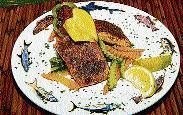
Ellen Campbell-Grizzle
A patient might say, 'I want something to make me feel good'. Not a very specific request but, depending on the circumstances, pharmacists today may recommend vitamins, a massage, a visit to the physician or chicken soup.
Some people claim to get a pick-me-up from energy drinks or boosters and often request a special brand or combination. Many of these products promise miracle-based purported health benefits. Some do not stack up under scientific scrutiny. Despite reported failures and scams, there is a groundswell of interest in 'feel good' medicines. There are many suppliers, both formal and informal, who are seeking to capture a piece of this business.
Sweet vanilla
One of the latest products to join the feel-good family is the old remedy, vanilla. It contains the fragrance heliotropin, a popular mood enhancer. In some cultures, vanilla was a sacred herb, used as a medicine to heal and soothe. A formula for a sweet tincture to treat stomach disorders was listed until 1916 in the American Pharmacopeia.
Dr. John King wrote in the American Dispensatory of 1859 that 'vanilla is an aromatic stimulant useful in infusions for treating hysteria, rheumatism and low forms of fever. It is said to exhilarate the brain, increase muscular energy and stimulate sexual propensities'. True 'vanillaphiles' believe in wearing products with their favourite scent or breathing in the aroma of the vanilla to lift spirits and calm jangled nerves.
Sometimes remedies are promoted not for their curative properties but because their use brings on a feeling of well-being. These remedies are primarily multi-vitamins mixed with minerals and herbs such as ginseng, kava or echinacea. Vitamin D, often called 'the sunlight hormone', is touted as a mood lifter.
Food sources of Vitamin D include salmon, fortified milk and fortified cereal. Do not overdo Vitamin D as limits are set according to age. The B vitamins are also very popular. Thiamine (B1), riboflavin (B2) and Vitamin B6 have been found to make people 'more agreeable'. A recent study showed that omega-3 fatty acids found in fish, complemented treatment used for depression.
A cautionary note

Salmon is loaded with vitamin D and is said to be a mood lifter. Photo shows Whitebone's blackened salmon served with a papaya compote. - Colin Hamilton/Freelance Photographer
The desire to feel good is not the same as getting high on drugs. Some addicts abuse alcohol, tobacco and other drugs to maintain euphoria. Such an unnatural state is dangerous to health and life. Here are three safety tips for pick-me-up purchasers:
If you are taking regular medication, discuss potential interaction with your pharmacist.
Do not buy medication, tonics or other health products from street-side vendors.
Check product labels clearly for name of ingredients, quantities and expiry dates.
There is no elixir or magic cure for feeling down and cranky. Some products are useful and should be used wisely, based on your particular circumstances. Chocolate is a well known mood elevator but do not overindulge. Remember, exercise is the natural way to lift your spirits. Give massage or aromatherapy a try. Make time for yourself and find at least one relaxing moment each day. Give back to your community. Feel good about yourself and who you are.
Ellen Campbell Grizzle, president, Caribbean Association of Pharmacists; director, Information & Research, National Council on Drug Abuse; email: yourhealth@gleanerjm.com.
